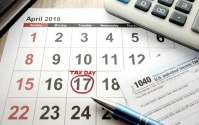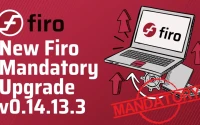Privacy's Not Dead, Just Expensive
Monero (XMR) is making moves. The privacy coin hit $377.63 on November 5, 2025, a 4.4% jump in 24 hours and 13.4% over the month. That’s a near 12% gain in a week. As of today, it's trading around $431.85, up a solid 24.40%.
But zoom out. This isn’t just a Monero story; it's a privacy coin story.
The Privacy Coin Surge: A Flight to Anonymity?
The second half of 2025 is seeing privacy coins outperform the broader crypto market. Capital is rotating toward Monero, but also into Zcash, Dash, and Decred. Zcash has exploded—up roughly 741% since late September. Monero itself is up about 54% since August. Decred and Dash? They’ve rallied 145% and 337% respectively in recent weeks.
What's driving this? Analysts point to tightening global regulations. Exchanges will be required to report wallet ownership to tax authorities starting in 2026. (A move that, let's be honest, was inevitable.) As Slava Demchuk at AMLBot puts it, growing surveillance and reduced privacy on major chains are likely fueling the surge. Peter Chung at Presto Research sees this as capital finding "pockets of strength," even during downturns.
And Georgii Verbitskii (TYMIO) nails it: "privacy has turned into one of the strongest narratives in crypto." Investors, it seems, are buying privacy, not yield. Retail interest is the engine here.
But let's not get carried away.

Digging Beneath the Surface: A More Nuanced Picture
Privacy coins aim to provide digital cash that can move freely without surveillance. Monero is one of the oldest players. But the prosecution of Tornado Cash developers highlights the legal gray zone. The market is supposedly shifting back to crypto’s original ideals—individual liberty and the right to transact without oversight. Bitcoin showed borderless money; Ethereum, finance without intermediaries; Zcash, financial privacy.
Or is it?
I've looked at hundreds of these market movements, and this one smells a bit different. The stated reasons for the Monero surge—the crackdown on Tornado Cash, the looming regulations—they're all valid. But they're also convenient. They fit a narrative. A narrative that might be masking something else.
Here's my read: it's not just privacy people are buying. It's optionality. It's the ability to move funds outside the gaze of regulators, not necessarily the intention to do so. It's like owning a safe in your house. You might never hide anything illegal in it, but you like knowing it's there.
And this is where Monero's community action comes into play. They're proposing a system for node operators to create a ban list of suspected "spy nodes." Key facts: Monero community proposes spy node ban list; XMR gains 12% - TradingView This isn't just about privacy; it's about control. It's about creating a network where the rules are enforced by the community, not by external forces.
Is this a good thing? That's debatable. But it's a powerful thing. And power, in the crypto world, translates to price.
So, What's the Real Story?
Monero's surge isn't just about privacy. It's about the market pricing in the value of regulatory arbitrage and community-enforced rules. It's not a flight to anonymity; it's a calculated maneuver in a world where the lines between legal and illegal are increasingly blurred. And that makes it a very interesting, and potentially very profitable, play.









